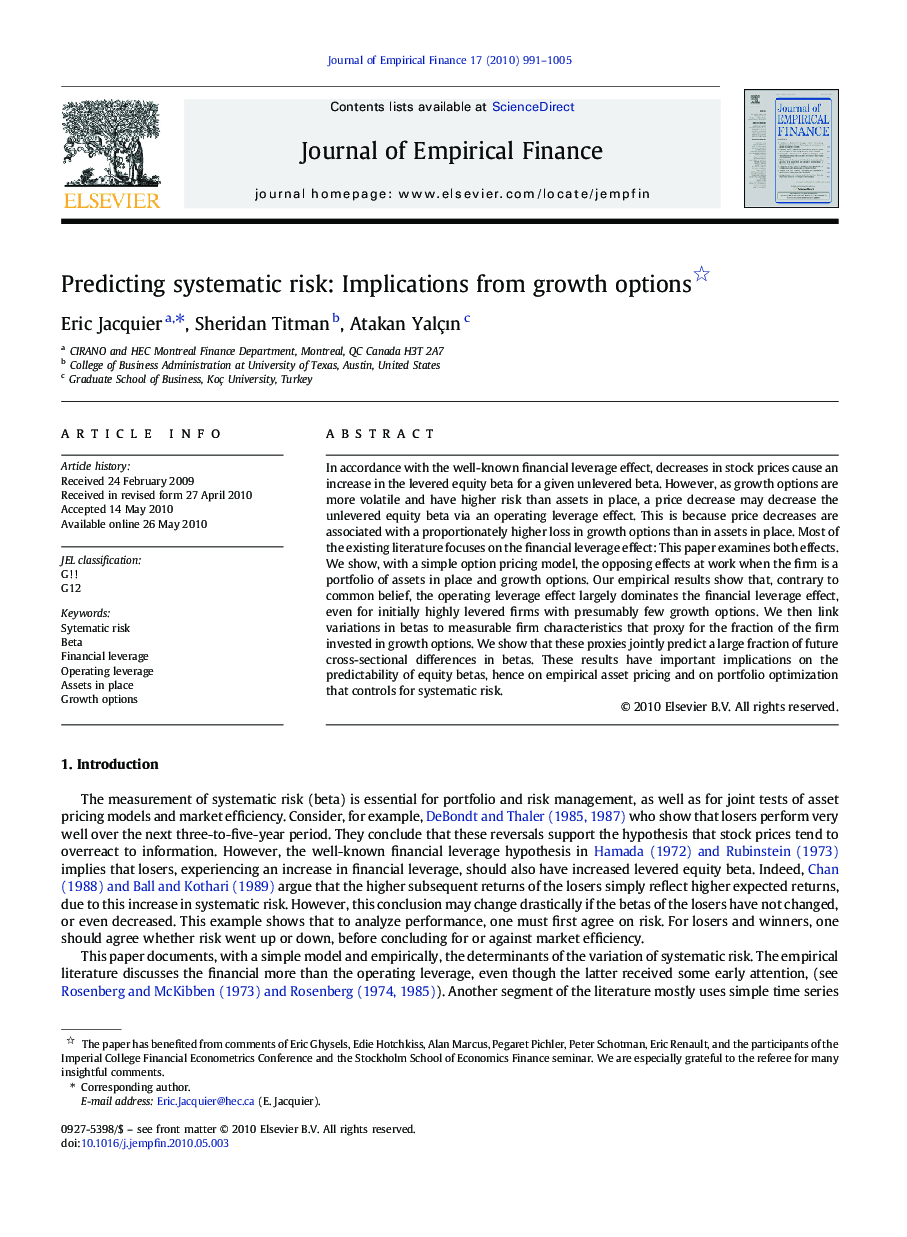| Article ID | Journal | Published Year | Pages | File Type |
|---|---|---|---|---|
| 958549 | Journal of Empirical Finance | 2010 | 15 Pages |
Abstract
In accordance with the well-known financial leverage effect, decreases in stock prices cause an increase in the levered equity beta for a given unlevered beta. However, as growth options are more volatile and have higher risk than assets in place, a price decrease may decrease the unlevered equity beta via an operating leverage effect. This is because price decreases are associated with a proportionately higher loss in growth options than in assets in place. Most of the existing literature focuses on the financial leverage effect: This paper examines both effects. We show, with a simple option pricing model, the opposing effects at work when the firm is a portfolio of assets in place and growth options. Our empirical results show that, contrary to common belief, the operating leverage effect largely dominates the financial leverage effect, even for initially highly levered firms with presumably few growth options. We then link variations in betas to measurable firm characteristics that proxy for the fraction of the firm invested in growth options. We show that these proxies jointly predict a large fraction of future cross-sectional differences in betas. These results have important implications on the predictability of equity betas, hence on empirical asset pricing and on portfolio optimization that controls for systematic risk.
Related Topics
Social Sciences and Humanities
Economics, Econometrics and Finance
Economics and Econometrics
Authors
Eric Jacquier, Sheridan Titman, Atakan Yalçın,
